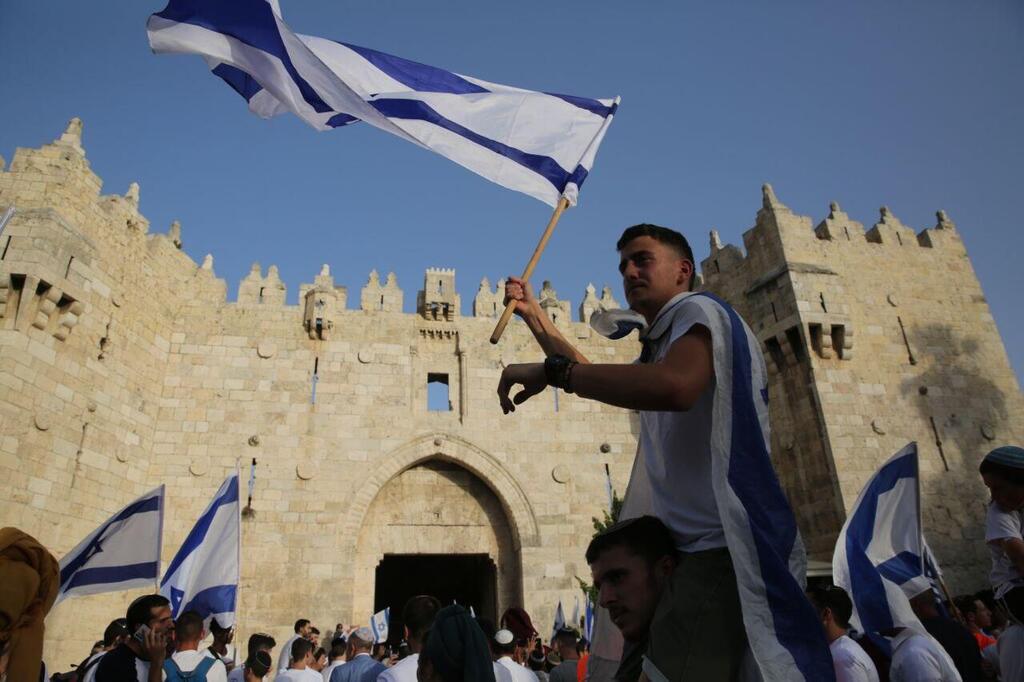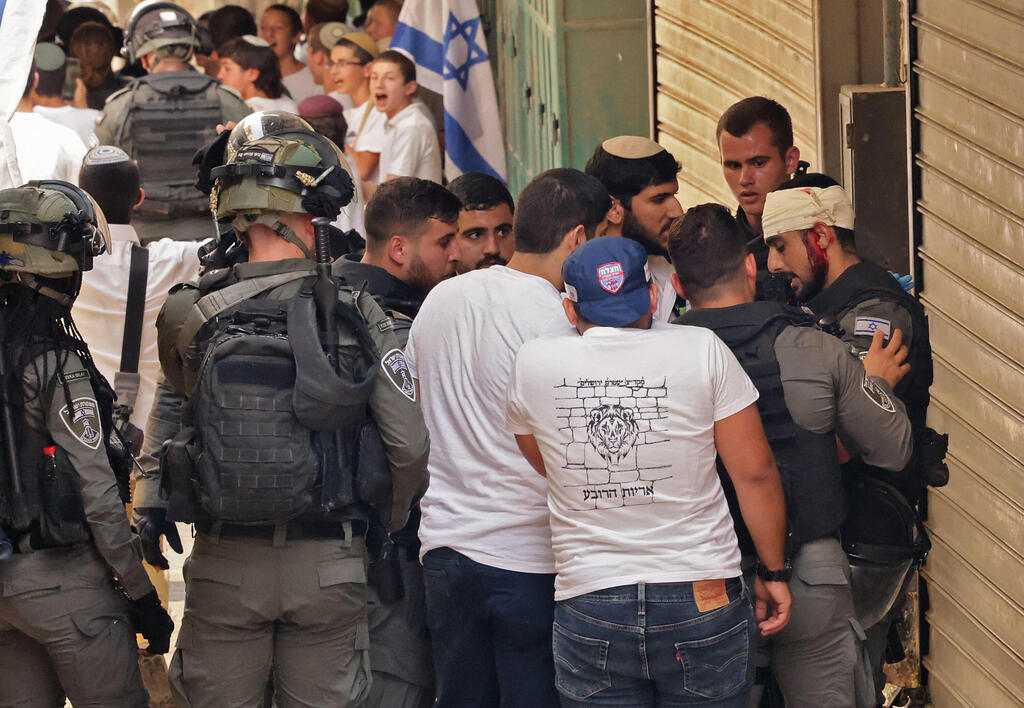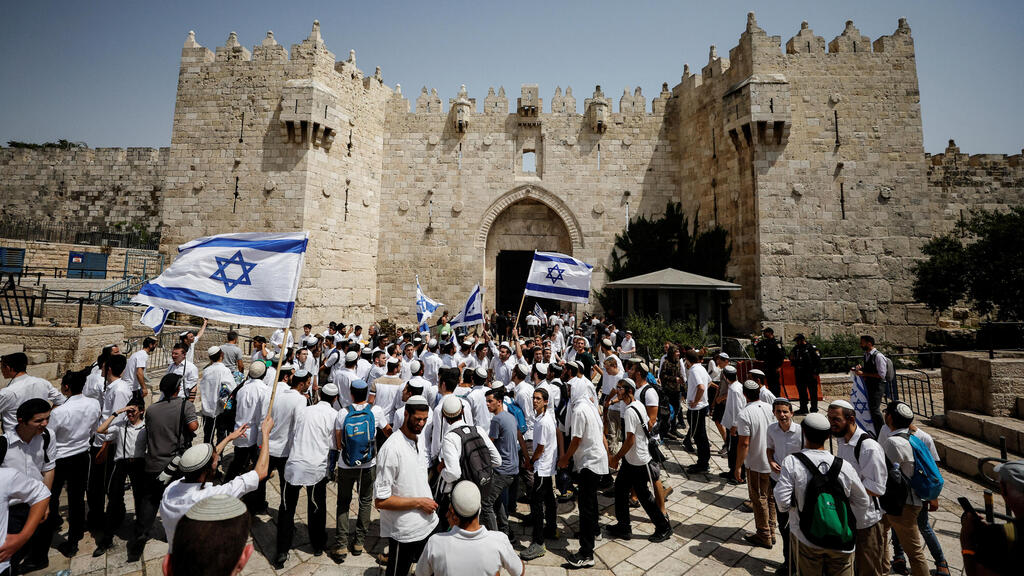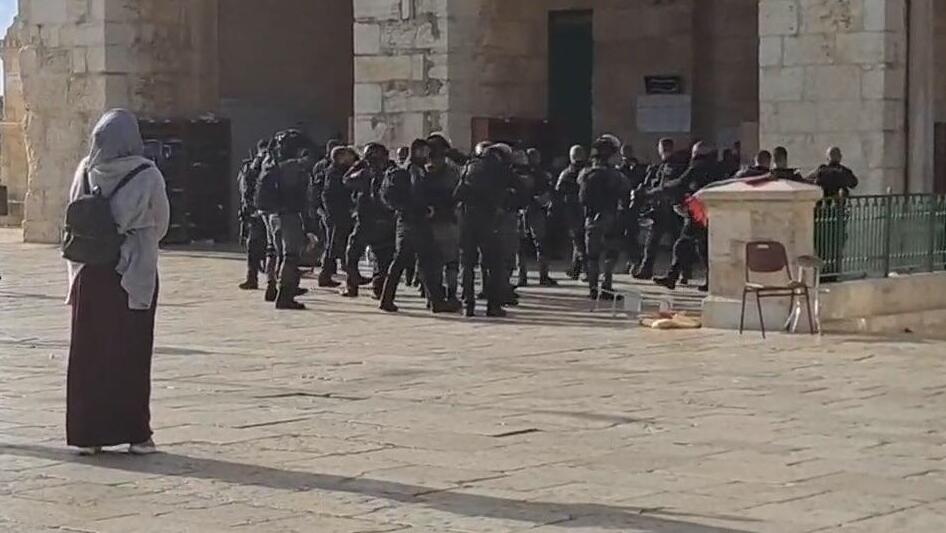Getting your Trinity Audio player ready...
Tens of thousands of flag-waving Israelis poured into the narrow, stone streets of Jerusalem's Old City to celebrate its reunification in the traditional flag march.
The rally got underway around 6pm local time from the Old City's King George Street and continued down the historical quarter until reaching the Western Wall Plaza where the closing event took place in the presence of prominent religious and public figures.
Prime Minister Naftali Bennett took to Twitter to congratulate the marchers.
I congratulate all who are celebrating at the traditional flag parade. It is our eternal capital, and it is only natural and befitting," he wrote. "Happy Jerusalem Day."
Ahead of the main rally, large crowds of yeshiva students and other jolly civilians marched through Old City and other parts of the capital singing and dancing in impromptu parades.
7 View gallery
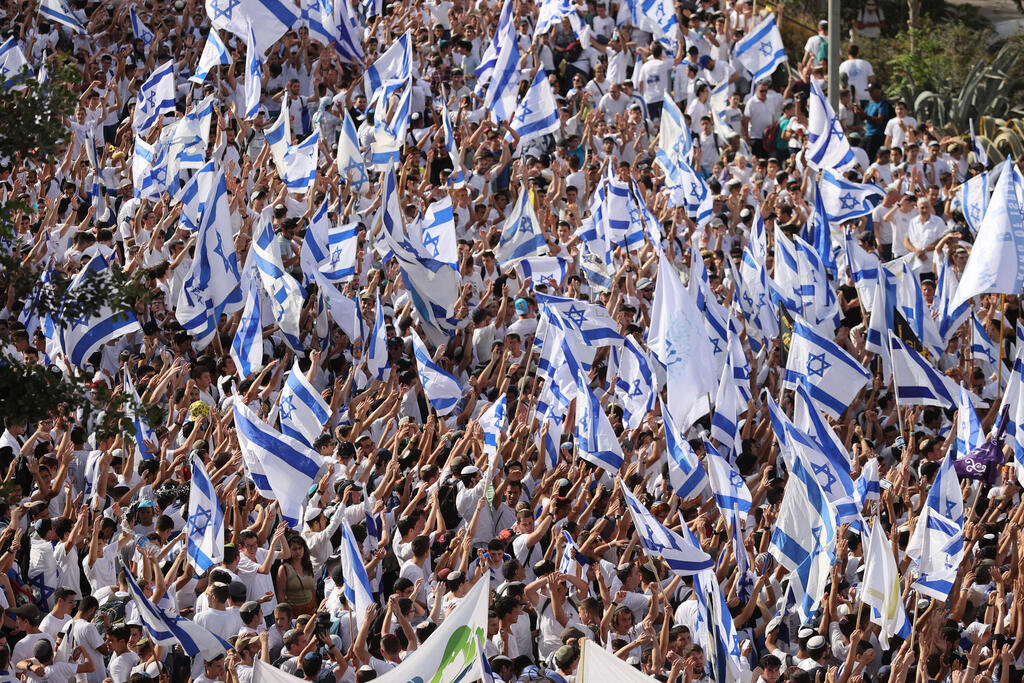

Flag-waving marchers passing through the streets of Jerusalem on Jerusalem Day
(Photo: Alex Kolomoisky)
The annual Jerusalem procession celebrates Israel's capture of the Old City in the 1967 Six-Day War and draws thousands of cheering and chanting participants.
Meanwhile, several marchers were injured after being attacked by Palestinians in several locations around the Old City in clashes that preceded the rally.
One bandaged marcher who was covered in blood told a Ynet photographer he was hit on the head with a bottle of beer, and that he also suffered a cut to his hand.
Police were seen using tear gas to break up skirmishes.
7 View gallery
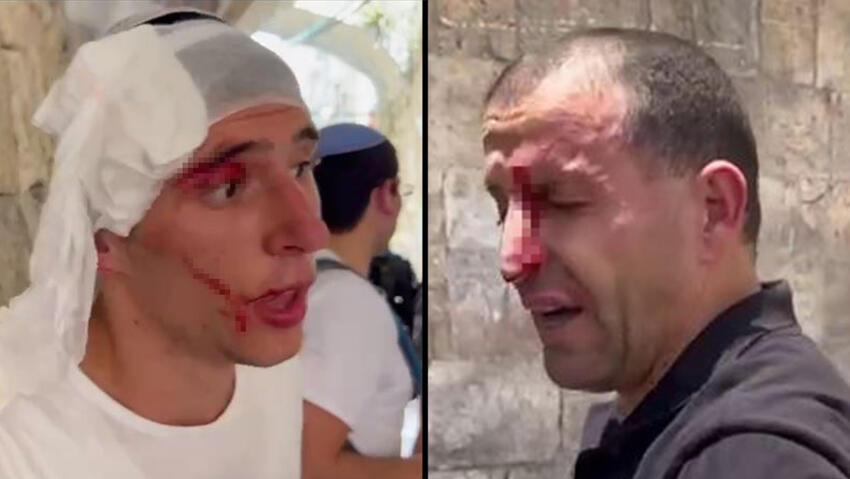

A Jewish marcher and a Palestinian injured in skirmishes ahead of Jerusalem flag march
(Photo: Erik Marmor)
Police also intercepted a drone flying a Palestinian flag over the historical quarter's Damascus Gate — a recurrent flashpoint of intercommunal violence — for fear it would be used to harm marchers and sabotage the rally.
Other rallies were held in Tel Aviv, Rishon Lezion and other locations all over the country.
Earlier Sunday, Israeli police faced off with Palestinians holed up inside Jerusalem's Al-Aqsa Mosque as more than 2,600 Jews visited the holy compound ahead of the nationalist march.
Palestinian factions have warned that the flag-waving parade through the city's Muslim quarter could re-ignite their decades-old conflict with Israelis at a time of highly charged tensions.
Hours before the procession was due to kick off, police locked some Palestinians inside a mosque on the Al-Aqsa compound as Jewish visitors arrived for daily tours of the compound, which is revered by both Muslims and Jews.
Palestinians threw stones and shot fireworks at police, who responded with stun grenades.
Jerusalem police said 21 people were arrested for hurling stones in and around the Old City.
Among the Jewish visitors were a dozen or so young men, wearing religious garb, who smiled, sang and clapped in the direction of the protesters. As the crowds grew, other Jews held up Israeli flags and sang the national anthem.
7 View gallery
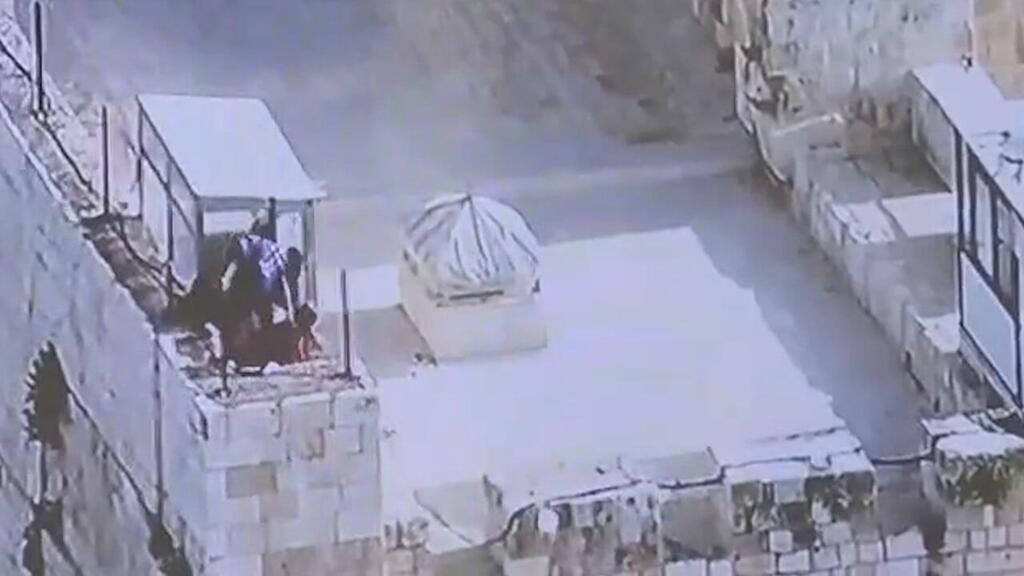

Palestinian rioters hurl stones at police force on Temple Mount on Sunday
(Photo: Israel Police)
The Islamist group Hamas, which governs the Gaza Strip, condemned videos posted online suggesting that Jews had prayed at the site, in violation of a long-standing ban.
"The Israel government is fully responsible for all these irresponsible policies and the following consequences," senior Hamas official Bassem Naim said.
In recent years Hamas has cast itself as a defender of Muslim Jerusalem. After weeks of confrontations last year over Palestinian evictions in the city, Hamas fired rockets into Israel during the march, triggering an 11-day war that killed at least 250 Palestinians in Gaza and 13 people in Israel.
No change
Shrugging off calls for a rethink of the route from some of his coalition allies, Prime Minister Naftali Bennett confirmed on Sunday that the parade would go ahead as planned.
"Waving the Israeli flag in the capital of Israel is perfectly acceptable," he said. "I ask the participants to celebrate in a responsible and dignified manner."
Israel sees all of Jerusalem as its eternal and indivisible capital, while Palestinians want the eastern section as capital of their future state. Hamas, deemed a terrorist organization by Western governments, sees all of modern-day Israel as occupied.
Palestinians view Sunday's march as an Israeli show of force and part of a broader campaign to bolster Jewish presence across the city.
Repeated clashes took place between Palestinians and Israeli police in the Al-Aqsa compound in April, during the holy month of Ramadan, with Muslims angered by the rising numbers of Jewish visitors to the mosque esplanade.
Two weeks ago, the funeral of Al Jazeera journalist Shireen Abu Akleh, killed during an Israeli army West Bank raid, descended into chaos when police charged the mourners and yanked away Palestinian flags.
Al-Aqsa is the third holiest site in Islam. It is also revered by Jews as the Temple Mount - a vestige of their faith's two ancient temples.
Sunday's procession is due to culminate at the Western Wall, a Jewish prayer site that sits below the Al-Aqsa mosques.
Reuters contributed to this report.
First published: 17:32, 05.29.22


